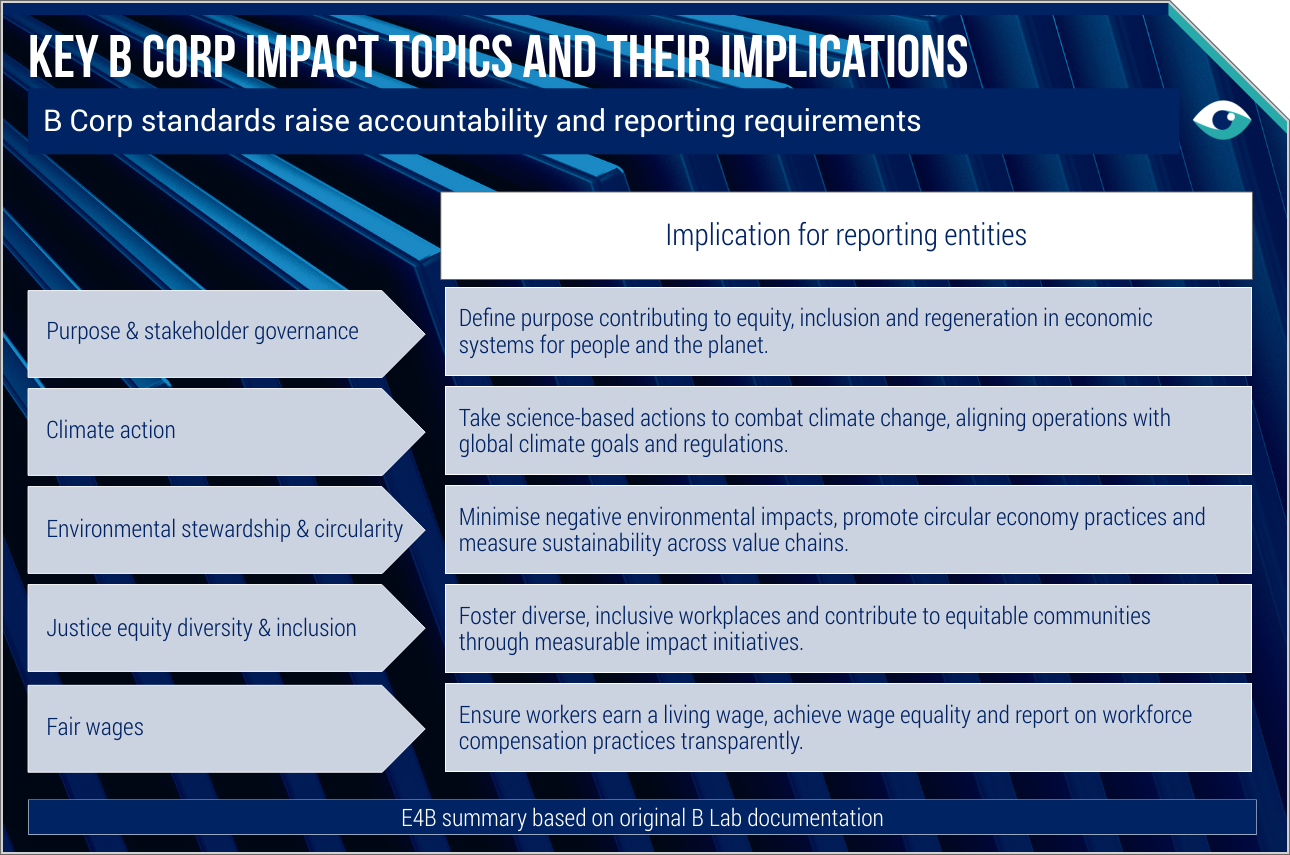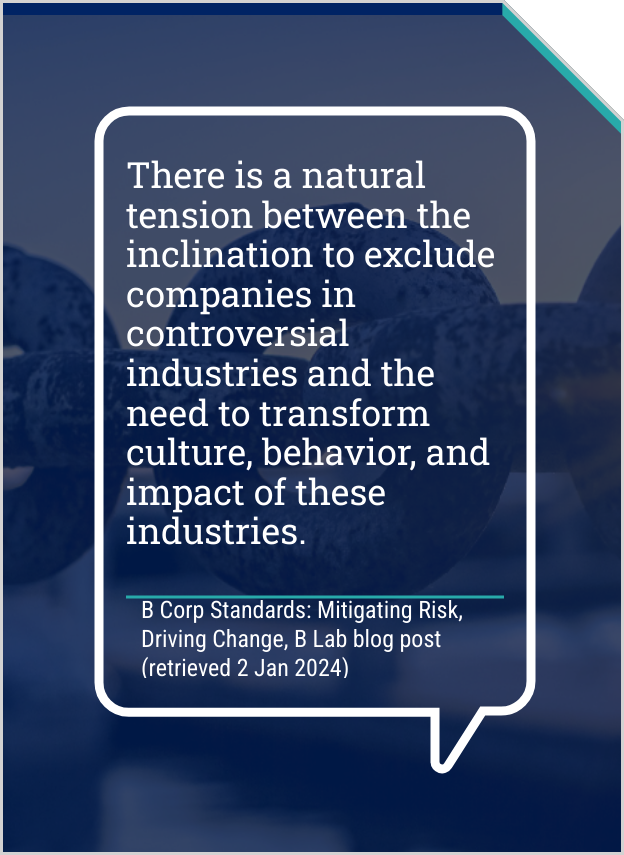In May 2024, B Corp announced a significant revision to its certification process, introducing minimum standards across 10 categories and a phased implementation to allow entities to meet new criteria. The B Corp movement, which has its origins among sustainability-conscious small and medium-sized enterprises (SMEs), has the potential to reshape worldwide corporate governance and reporting practices among more than 8,000 certified businesses in 96 countries. Despite the increased complexity and implied cost of the latest revisions, B Corps and non-B Corps should advocate for stricter verification mechanisms to align supply chains with evolving expectations.

BACK

B Corp: From shareholders to stakeholders
Revised B Corp standards raise costs for firms but offer opportunities to mitigate reputational risks and align with sustainability goals
Policy
Global (all industries)
Publication date: 01 Jan 2025
By Eye For Business
AT A GLANCE
Emerging B Corp standards present a dual challenge of higher costs and stricter requirements, creating risks for smaller suppliers.
These changes are crucial to improving accountability and mitigating reputational risks tied to greenwashing.
Firms must align governance and supply chains with evolving regulations to remain competitive and credible.
Stricter certification
The controversies surrounding B Corp certification, such as the backlash against Nespresso and Brewdog, expose systemic weaknesses in self-reporting and verification processes. Rigorous impact assessment is essential for entities seeking B Corp certification. A 2025 B Lab report reveals that 86% of B Corp respondents and 87% of non-B Corp respondents believe the new draft standards represent high standards for social and environmental performance. There is an urgent need for more transparent and enforceable standards to restore trust.
Cost and complexity
The revised draft standards for B Corp certification, which replace flexible scoring with mandatory benchmarks across nine Impact Topics, aim to improve accountability but risk excluding smaller suppliers. The shift introduces measurable requirements in areas like climate action and human rights, and there is a new verification fee effective from April 2024. Administrative and financial burdens risk excluding smaller suppliers, particularly in emerging markets, potentially limiting the inclusivity and effectiveness of B Corp certification as a global movement.

Supply chain initiatives
Research shows that certification helps entities comply with legislation, reduce litigation risks and foster stakeholder trust. For instance, Unilever's Sustainable Agriculture Code, which supports smallholder farmers in the Global South, demonstrates how sustainable initiatives can reduce environmental impact while fostering ethical labour practices and economic resilience.

Sustainability in governance
The B Corp movement has fostered collaboration and networking among firms by requiring them to amend their articles of association to prioritise social and environmental impact alongside financial returns; this shift enhances corporate governance towards a more holistic approach. The evolving standards of B Corp certification reflect a shift towards more stringent performance requirements that not only enhance corporate governance but also promote a culture of accountability and continuous improvement.
FURTHER READING
- Proposed changes to the B Corp certification regime - will we see more or less B Corps? (Farrer & Co)
- UK B Corps on the value of achieving certification (BGF)
- Sustainable supply chains: best practices and case studies (PSICO Smart)

BACK
